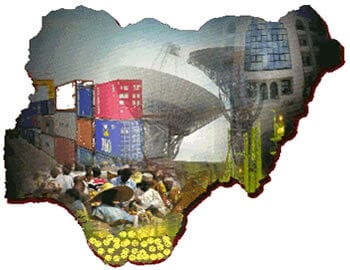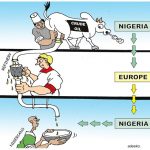HOW are civil servants coping with life under recession and high inflation? Today, there are public servants whose monthly salary is less than N25,000. That is US$50 if a dollar is equated to N500. This is not to talk of the state government workers who get far less than that. One is, therefore, pained the more considering the fact that the minimum wage of N18,000 has not been implemented by some states over five years since it was enacted. Maybe there is no mechanism for enforcement of this law. Yet, wonderfully, the government engines are working and they are expected to be maximally productive, corrupt-free and patriotic. Nonetheless, many of these lovely country people are doing their best to keep their national and state obligations sacred. But alas! Their rewards are in heaven!
Most civil servants have been living on the mercy of God. The salaries they get are not realistic because the cost of living has risen to unbearable height. It is surprising that the government is foot-dragging in making any quick increase in the wages of these meek lambs. This policy of underpaying and expecting high productivity is of the colonial era and not democracy. Though the recession has dealt with the government itself, it must be a matter of national emergency to improve the salaries and welfare packages of the real government labourers, with the high hope that the economy will get better. No one in Nigeria today does not complain of hardship. Generally, there is no more free money. I think the rich have more complaints than the poor; a terrible situation that heralds the reluctant justice in the distribution and utilization of the commonwealth. Maybe the private sector is still better because they control the prices of commodities. Though they base their calculations on government provision of basic amenities which are mostly lacking, they are mostly capitalists and everything centers on profit – huge profits. The government creates the vicious circle because the primary requirements for businesses are expensive and also insufficient and inefficient.
The means of transportation and production are exorbitant. Transporters and producers therefore capitalize on the high cost of machines, electricity, fuel/diesel, amongst others to cheat the masses. According to the Minister of Agriculture, Audu Ogbeh, the illegal fees collected on Nigerian roads by the Army, police, Customs and local/state government agents are responsible for the hike in the cost of commodities. The private workers need not wait till the end of the month to earn a living. But, the civil servants whose salaries have remained paltry and static are always at the receiving end.
Especially for the junior workers who get little above N20,000, life is miserable. How a single mature citizen survives on this amount is a miracle. For those who are married and have children, life is hell. Some families have been broken because of this. Parents quarrel over household demands: feeding, accommodation (rent), school fees/requirements, utility bills and medicals. Unfortunately, some female partners secretly engage in unholy acts to complement the male’s efforts and vice versa. The children of these workers do not go to school; some go halfway and are chased back home for school fees; some allow their grown-ups to go into unholy acts to meet up. Child abuse and labour are natural companions of the low income earners in the public sector.
A holistic analysis of the conditions of the civil servants attracts sympathy and fears for the nation. They are accused of being the engineers of corruption. While the politicians come overnight and lord it over the civil servants, they teach the politicians the job and still remain poor. And by the time the politician finishes his or her tenure, the story turns the other way round that the money belonging to the government and the people has been looted. It is true that some workers are corrupt, especially those who see/keep funds or make decisions for the diversion of the money for personal use. But the low income earners depend on the gifts from their superiors and contractors. In that case, a file in a public office must be pushed to the next desk/office with a bribe which is subtly called gratification/gift. And before now, a contractor must have parted away with over half of the contract value before the contract is eventually handed over. It was 10% unconditional payback and conditionally anything above half of the contract money. The situation is unpredictable with this recession, inflation in prices and war on corruption by the Muhammadu Buhari-led government.
Most houses in the cities are vacant because the rent is high. This is despite the fact that rents have reduced with the present reality. 90 percent of the civil servants live in the suburbs where all kinds of affordable houses are erected for them or by themselves. For instance, in Abuja, civil servants live outside the Abuja Municipal where their offices are located
- Ajah writes in from Abuja






